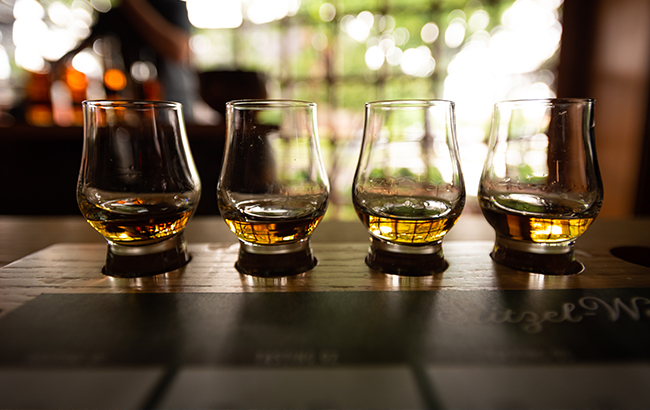UK-India FTA: key to unlocking Scotch potential
The UK and India’s forthcoming free trade agreement is the “biggest thing to unlock potential in Scotch” and could boost the sector’s exports to the country by £1 billion (US$1.2bn) over five years.

The UK and India began discussions for a free trade agreement (FTA) in January this year, with the third round of talks concluded on 6 May.
The fourth round of negotiations is due to be hosted by the UK next month. It is hoped that a deal will be reached by the end of 2022.
The move could lead to the lifting of a whopping 150% tariff on Scotch whisky in India, a key market for the category.
In 2021, India was the second‐largest export market for Scotch by volume, with 136 million bottles shipped, an increase of 44.3% on the previous year, according to the Scotch Whisky Association (SWA).
The 150% tariff make exporting expensive and complicated for many distillers, the SWA said, with the market being particularly challenging for smaller companies.
Martin Bell, SWA deputy director of trade, told The Spirits Business last month: “The biggest thing to unlock potential in Scotch is addressing the 150% tariff.”
The removal of the 150% tariff could triple the market share of Scotch whisky from 2% to 6% and provide greater choice for Indian consumers. It would also benefit the Indian government, the SWA says, by increasing annual revenue by £3.4bn (US$4.1bn).
“Scotch is always going to be a niche product there but if we could increase our volumes then that would be good for the Scotch whisky industry, good for consumers and good for revenues,” Bell said.
Nita Kapoor, CEO of the International Spirits and Wines Association of India (ISWAI), said the trade body welcomed the UK-India FTA talks, which she hopes will benefit the alcohol industry in India.
She said: “The India-UK FTA has the potential to be a win-win for the entire alcobev sector in India. The Scotch segments of bottled-in-origin (BIO) and bottled-in-India (BII) are under 4% of the total IMFL [Indian-made foreign liquor] industry.
“With the reduction in custom duty rates whilst these segments will witness growth, it will also enable Indian manufacturers to enhance their product quality and offer new products for domestic and export markets.”
The ISWAI is calling for an immediate reduction of customs duties from 150% – 50% on basic customs duty (BCD) and 100% on agriculture infrastructure and development cess (AIDC) – to 75% in the first year. By year three or earlier, Kapoor urges a cut of 30% on BCD.
Complex tax structure
The Indian market, while offering huge opportunities for distillers, is particularly challenging for the alcohol sector as each of its 28 states set their own taxes and restrictions.
Last year, the Maharashtra government slashed excise duty on Scotch whisky imported to the Indian state from 300% to 150% of the production cost. The tax cut will be applicable on BIO products entering India, excluding whisky bottled in India.
Bell said the government expects the Maharashtra tax cut to result in revenue more than doubling, as well as a reduction in counterfeit products.
“The government sees it as an opportunity to increase revenue,” he noted. “We expect other states to follow that very closely if it succeeds.”
Kapoor said the “industry-friendly, progressive” policy change would improve “tax compliance, eliminate the grey market and inter-state product smuggling, thereby increasing the state’s revenue collection”.
She added: “As we get more integrated with the global economy, we must work to co-exist and embrace progressive policies in the larger interest of all stakeholders.”
Related news
Golf drives Glen Moray push in UK travel retail
